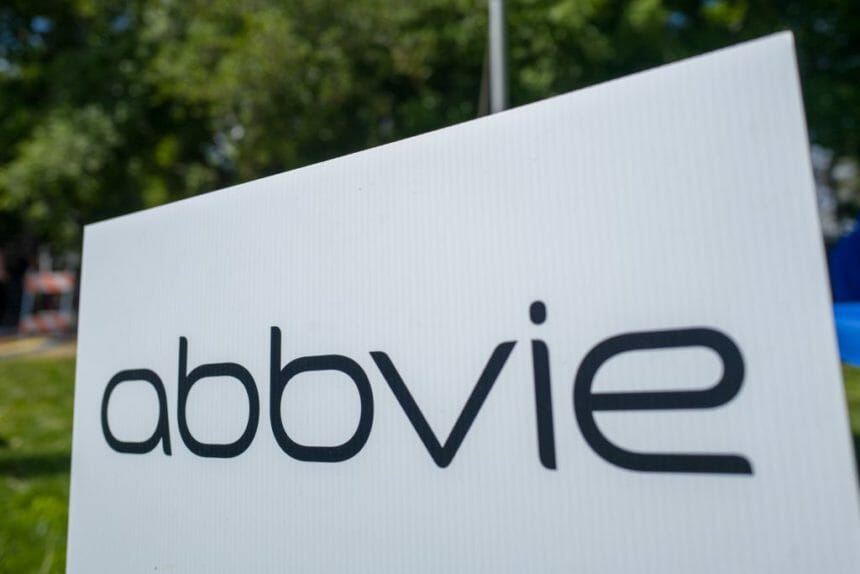As earnings season continues on, three major pharma companies recently released their latest financial reports.
AbbVie generated net revenues of $14.8 billion, marking an increase of 3.3% on a reported basis and 5.4% operationally. The company’s earnings per share during the quarter were $2.21, up 24.2% year-over-year.
AbbVie benefited from the strength of several aspects of the company, including its immunology and neuroscience portfolios, which saw revenues rise 14.6% and .6.7%, respectively. Similarly, AbbVie’s aesthetics portfolio rose 4% to just over $1.3 billion as Botox generated $637 million in net revenues.
Meanwhile, its hematologic oncology segment reported an 11.7% decrease in net revenues as global net revenues for imbruvica slipped by 17.4%.
Looking ahead, AbbVie confirmed the midpoint of its full year adjusted EPS guidance range and declared a dividend increase of 5%.
“We continue to see strong momentum from our key immunology assets, Skyrizi and Rinvoq, and this performance — combined with strength from other growth drivers within our diverse portfolio — has mitigated the impact of temporary economic headwinds on our aesthetics products to deliver another quarter of strong results,” AbbVie CEO Richard A. Gonzalez, said in a statement. “Based upon our performance and confidence in AbbVie’s long-term outlook, we are once again meaningfully raising our dividend.”
The company released its earnings Friday morning, less than two weeks after chief legal officer Laura J. Schumacher announced her retirement.
For its part, Sanofi recorded sales growth of 9% at CER thanks to its Specialty Care and Vaccines portfolios. Namely, Dupixent’s sales rose 44.5%, carrying Specialty Care to 19.9% growth during the quarter while its Vaccines segment grew 23.5% over the same period.
Another area that produced for Sanofi was its General Medicines segment, which reported 2.4% core assets growth despite lower than expected Lovenox sales.
Higher sales and margin expansion also boosted Sanofi’s business EPS by 17.9%. The company now expects its full year business EPS to grow approximately 16% at CER.
Outside of its earnings report, Sanofi recently teamed up with Regeneron on a campaign centered around Broadway actor Tommy Bracco to promote the launch of JoinLungZone.com and use of Dupixent for treating uncontrolled moderate-to-severe asthma.
“Our strong results for the third quarter demonstrate that Sanofi is on the right path, with a remarkable performance of 20% growth in both Specialty Care and Vaccines, leading us to again raise our business EPS guidance for the full-year. Our commitment to breakthrough science is bearing fruit,” Sanofi CEO Paul Hudson said in a statement.
On Thursday afternoon, Gilead released its earnings report, highlighted by revenue declines of 5% due to lower Veklury sales. The company’s diluted EPS decreased to $1.42 in Q3 2022, down from $2.05 in Q3 2021.
Gilead noted that excluding Veklury, product sales rose 11% year-over-year, with Biktarvy sales up 22%. Additionally, Gilead’s oncology sales increased 79% to $578 million over the same period.
Gilead achieved an operating cash flow of $2.9 billion and repaid $1 billion of debt during the quarter. Still, its cash, cash equivalents and marketable debt securities dropped from $7.8 billion at the end of 2021 to $6.9 billion at the end of Q3.
One of the most significant developments for Gilead during the quarter was the completion of its $405 million purchase of MiroBio, a privately-held U.K.-based biotech, in September.
The company also announced in August that it would collaborate with several LGBTQIA+ and human rights organizations to combat the ongoing spread of monkeypox. Gilead pledged $5 million in global grant funding to support a campaign aimed at promoting public education and addressing vaccine hesitancy.
“This was another very strong quarter across the business. In HIV, treatment and prevention markets continue to grow with further share gains for Biktarvy in treatment, and we received our first approval for our long-acting HIV agent, lenacapavir, in Europe,” Gilead CEO Daniel O’Day said in a statement. “In oncology, there is increasing demand for cell therapies and Trodelvy. Yescarta and Tecartus received two approvals in Europe and Trodelvy was granted FDA Priority Review for HR+/HER2- metastatic breast cancer. Overall, we are seeing terrific progress from a commercial and clinical perspective and look forward to building on this momentum.”







